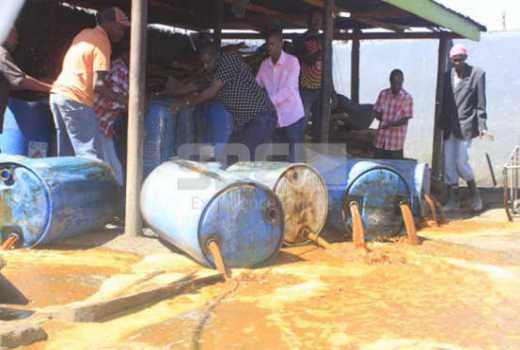×
The Standard e-Paper
Home To Bold Columnists

NAIROBI, KENYA: The Nyanza region has become a dumping site for second-generation alcohol banned in Kenya, Uganda and Tanzania.
There are reports the alcohol is responsible for increasing cases of fishermen drowning in Lake Victoria.